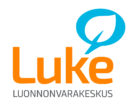The potential impact of coastal grazing on water resources is causing concern. It is suspected that livestock introduce microbes that cause infectious diseases in people, as well as nutrients, into water systems. The concern regarding hygiene effects is partly justified and needs to be studied in more detail. In grazing, some of the nutrients from the vegetation are retained in the growth of animals, and coastal grazing potentially decreases the total nutrient load; however, more research is needed on this. The project’s goals include supplementing the knowledge of the impact of grazing livestock on the hygiene and nutrient status of coastal waters, and dispelling uncertainty concerning the impact on water resources from grazing.
Measures
- Variables for nutrients (phosphorus, nitrogen) and hygiene (intestinal and pathogenic microbes) in the water systems in the pastures and comparison areas will be defined, as well as pathogens from manure samples from the pastures.
- The nutrient cycle (phosphorus, nitrogen) through grazing livestock in the pastures will be determined through calculations.
- The estimate of the hygiene risks and nutrient impact on water resources caused by coastal grazing and recommendations on minimizing the risks will be updated.
Outcomes
- An updated estimate of the hygiene risks and nutrient impact on water resources caused by coastal grazing, and recommendations for minimising the risks.
- Nutrient balance calculations (phosphorus, nitrogen) per mother suckler cow and calf: intake, faecal and urinary output and retained.
